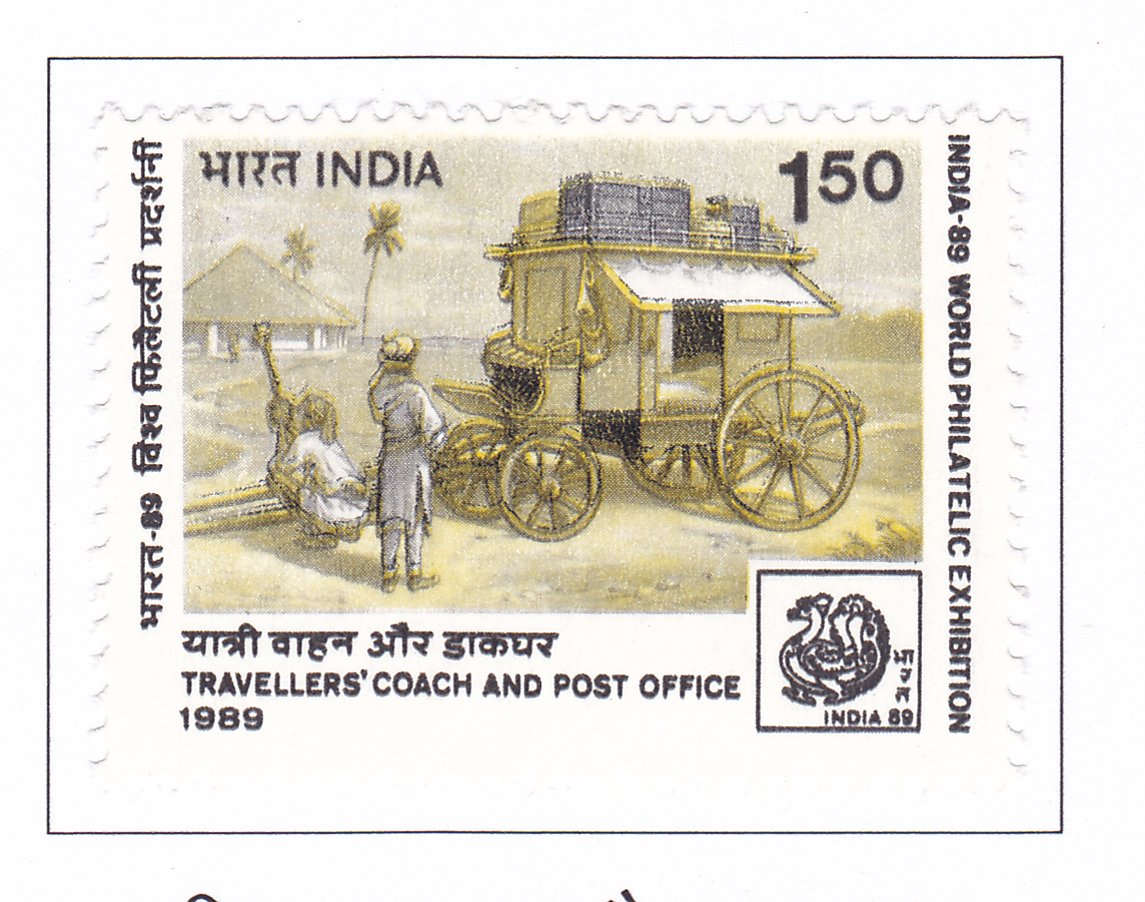Philatelic Exhibition: Dawk Gharee (mailcart)

Technical Data
| Stamp Set | INDIA - 89 world Philatelic Exhibition |
|---|---|
| Date of Issue | January 20, 1989 |
| Denomination | Rs. 1.50 |
| Quantity | 1,500,000 |
| Perforation | comb 13½ x 13 |
| Printer | Security Printing Press, Nashik |
| Watermark | No Watermark |
| Colors | Multicolor |
| Catalog Codes |
Michel IN 1204 Stamp Number IN 1261 Yvert et Tellier IN 1009B Stanley Gibbons IN 1359 |
| Themes | Logos | Mailcoaches | Philatelic Exhibitions | Philately | Postal Services |
Traveller’s Coach and Post Office (Dawk Gharee)
The stamp depicts a Traveller’s Coach and Post Office, commonly known as the Dawk Gharee (mailcart). This historical mail transport system played a significant role in the early postal services of India.
Origins and Development:
- First Use: The first wheeled cart for mail was introduced in 1841 in Meerut by a Mr. Smith.
- Expansion: Following its initial success, post offices began hiring wheeled carts for mail transport. In 1842, the service expanded with routes between “Mynpooree” (Mainpuri) and “Allyghur” (Aligarh), and later extending to Delhi and Meerut.
The Illustrated Dawk Gharee:
- Ownership: The Dawk Gharee illustrated on the stamp belonged to Mr. Beacon of M/s. Greenway and Company, Calcutta.
- Routes and Services: The company held a license to carry the Royal Mail/Foreign Mail between Calcutta, Diamond Harbour, and Barrackpore. Additionally, they operated on the Calcutta-Banaras-Patna route, transporting both mail and passengers.
- Coachman’s Announcements: The approach of the coachman was announced by the whirling of his bell-studded whip and the sounding of his bugle, alerting people of the mailcart’s arrival.
Historical References:
- Text and Design Courtesy: Manik Jain.
- Sources: The design and historical context draw from G.F. Atkinson’s “The Ingredients of Social Life in India” and William Carey’s “The Good Old Days of John Company.”
This stamp highlights the significant contribution of the Dawk Gharee to India’s postal history, illustrating an era when mail and passenger transport was a critical link in communication and travel.
